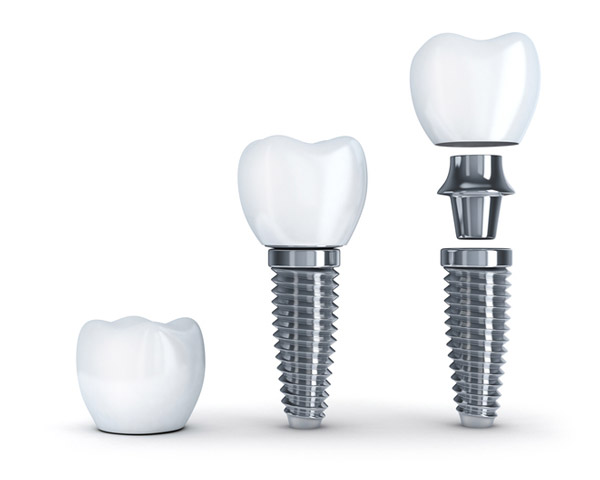Who Is A Candidate For Dental Implants
Charlotte, NC
 A dental implant is used to replace tooth roots and act as a robust base for a replacement tooth. It is usually made of titanium and has a screw-like appearance. An implant is surgically inserted into your jawbone and allowed to bond with it over time. A dental implant is used to replace tooth roots and act as a robust base for a replacement tooth. It is usually made of titanium and has a screw-like appearance. An implant is surgically inserted into your jawbone and allowed to bond with it over time.
Missing teeth can have a negative impact on your oral health. If left untreated, tooth loss can result in misaligned teeth, hamper your chewing ability, and cause difficulty in speech. Dental implants are a reliable and long-lasting solution for tooth loss.
Types of Dental Implants
The three most common kinds of dental implants you can choose from include:
Endosteal Implants
They consist of placeholder posts that appear like screws, and are only suitable for people with a strong jawbone in place. Endosteal implants are inserted into your jawbone to fuse with it over time. After healing, an artificial tooth can be fixed atop it.
Subperiosteal Implants
Subperiosteal implants are placed under your gum but above the jawbone. Unlike endosteal implants, they are not inserted within your jawbone. A metal frame with a post attached to it is fit under your gum. The new tooth is then fixed to the poles that erupt from the gum.
Zygomatic Implants
These are the least common kind of dental implant and require a complicated procedure. Zygomatic implants should be preferred only if you are missing a healthy jawbone needed for an endosteal implant. The process involves inserting the implant in the cheekbone rather than the jawbone.
Are You A Candidate For Dental Implants?
Here are five indicators that you are fit for dental implants to treat tooth loss:
Good Gum Health
Before suggesting dental implants, your dentist will examine your gums to make sure no signs of gum disease are apparent. If some indications are present, you need to have it treated before you can get an implant. Going through an implant surgery while you have periodontal disease can lead to bone infection. If your jawbone gets impacted, the implant may be unsuccessful.
Healthy Bone Density
One of the benefits of implants is that they offer a permanent solution. However, you need to have a healthy jawbone to effectively hold the implant in place. Therefore, your dentist will first analyze the condition of your jawbone. If it is found to be insufficient, a restorative surgery such as a bone graft may have to be done before you can get an implant.
Good Oral Health
Oral habits substantially affect your dental implants. You are a good candidate for implants if you adopt proper oral hygiene practices. This includes brushing twice a day, flossing once a day, and consulting your dentist for bi-annual check-ups. Even after you get an implant, these oral habits are all you need to adopt to care for it, which is a major benefit of implants.
No Tobacco Use
Dental implants are not recommended for people who have a habit of smoking or using tobacco products. Tobacco interferes with healing and can increase the probability of implant failure. It restricts the supply of blood and oxygen in your body, which can make the implant fail to fuse with the jawbone. If you have such a habit, consider quitting at least six months prior to your implant surgery.
Minimal Bruxism
Clenching or grinding your teeth can result in undue pressure on the implants and weaken them. If you tend to grind your teeth, you can choose custom-fitted night guards to get rid of the tension and provide support to your jaw muscles.
A significant benefit of implants is that they can last a lifetime with adequate care. If you think they are an effective solution for your dental needs, schedule an appointment with us at Myers Park Dental Partners by calling us at (704) 332-2532 today.
|
